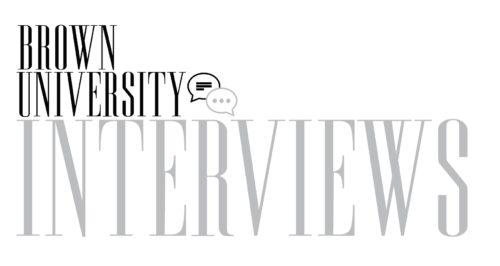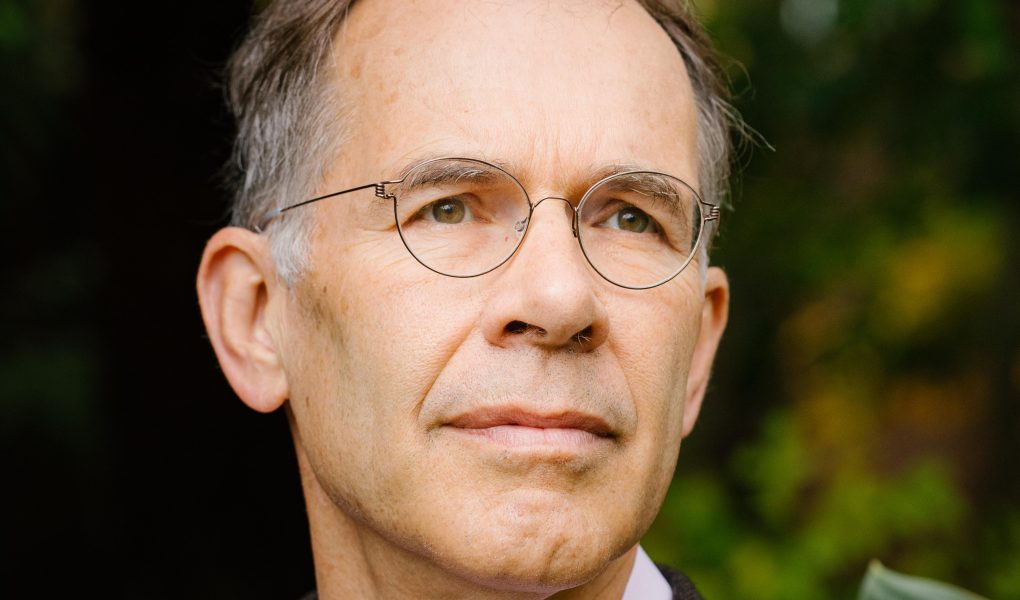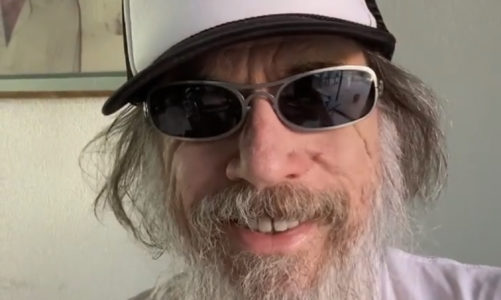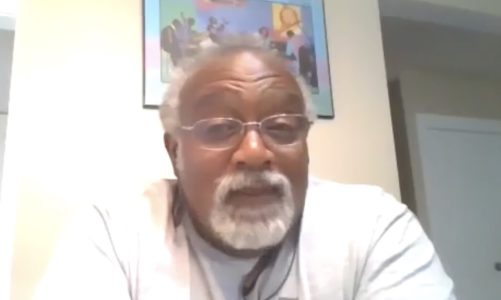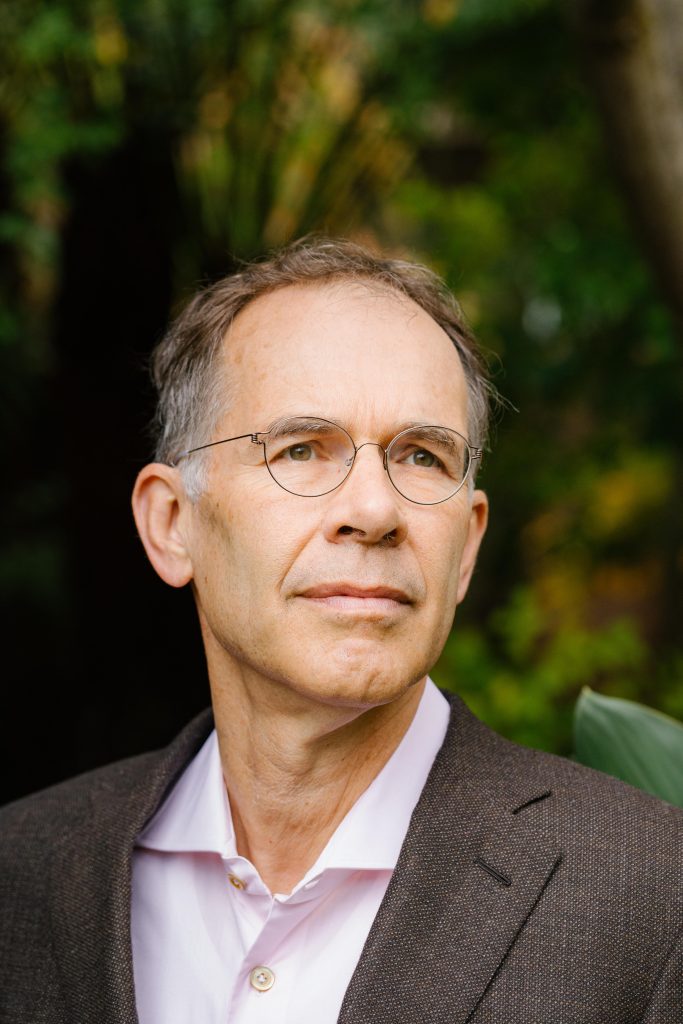
Dr. Guido Imbens is one of three co-recipients of the 2021 Nobel Prize for Economics (the Sveriges Riksbank Prize in Economic Sciences in Memory of Alfred Nobel). Currently, Dr. Imbens is a Professor at Stanford University’s Graduate School of Business. Dr. Imbens joined Stanford in 2021, however, his academic career spans across multiple institutions including Harvard University, UCLA, and UC Berkeley. In this interview, we discuss his life outside of academics, great mentorship, and the economic relationships he wished we all paid more attention towards.
Soneida DeLine-Caballero: Define who you are outside of economics and your position as a professor. What are some key characteristics or traits that you would use to describe yourself?
Dr. Guido Imbens: I am married with three kids 18, 15, and 11 years old. Most of my life is defined by my family. Especially over the last two years, we’ve spent a huge amount of time together. Beyond my work and family, there’s nothing else. We live on campus, so the kids have always been very involved and connected to our professional lives. In fact, my youngest had started attending one of my classes and we often have students over at our house.
It sounds like the lines between your academic and personal life are blurred. Do you enjoy mentoring students in both aspects of their lives, professionally and otherwise?
Yeah! I often mentor both graduate and undergraduate students. These students are navigating a challenging transitory period, especially in graduate school. There are a lot of students coming from abroad. Even before the pandemic when I first came here, I found it was a difficult transition. I had never been to the US before. Brown University was a very welcoming community. One of my professors invited a bunch of different graduate students over for dinner on Thanksgiving. I remember thinking, Wow, that was a very nice thing to do at the school because it can be very lonely as a new student. Part of my role as a professor is helping students navigate these challenges in addition to academic ones.
Can you differentiate the study of economics as a whole from your specialities of Applied Economics and Econometrics?
Economics in general is about allocation of scarce resources, basically trying to figure out how people behave and how incentives work. That can be – at a theoretical level or it can be at a data/empirical level. Econometrics is about building statistical tools for dealing with the economic type of data, you may want to analyze. For example, when it comes to government policy, it’s important to understand the effect of having more or less education can have on individual job prospects. Ideally, you would answer this question by conducting a controlled experiment. This means you would compare the outcomes of people who were randomly selected and assigned to one of two groups: a group that would go on to attend college and a group that would not attend college. But clearly, this is not feasible. It wouldn’t be ethical to prohibit random people from going to college. From the standpoint of economics, the question is “how do we figure out what that causal effect really is without conducting a controlled and randomized experiment”? Because the causal relationship is what is most important for informing policy. The fact that people who go to college have higher earnings than people who don’t attend is a correlation but not an actionable insight because the differences could just be a reflection of innate individual characteristics. So what we’re trying to do is tease out causation apart from the correlation. We tried to find new ways to estimate the causal effects so you can draw conclusions that would be similar to a randomized experiment.
You mentioned your research publications tend to be written for economists with technical expertise, but do you ever think it would be beneficial if the general public had a better understanding of the methods you develop?
Historically, economics hasn’t focused on making research accessible. When it comes to other fields of study, you often see The New York Times having big stories about new pictures of the black hole at the center of the Milky Way, then they go on to explain research topics in a way that is accessible to the general public. I don’t know exactly how they’ve gotten to that equilibrium, where the journals that publish scientific literature are very good at outreach to the general public. They clearly are good at getting widely circulated publishers to pay attention to their work. I think it would be good for economists and economic journals to work with publications like The New York Times to make economic research more accessible. However, it’s not really essential for the work I do because, in the end, I’m trying to communicate to the people who analyze the data.
That’s a good point, you don’t see a lot of economists on late-night television or TV shows. I was wondering if there are any causal relationships that you wish the general public would pay more attention to.
I’ve done some work on universal basic income. From a policy perspective, it’s important to understand how people’s behavior would change as a result of having a universal basic income, as that’s difficult to figure out in general. You can look at people who get inheritances or who have wealthy spouses, but those things are not really random. They would still have all sorts of biases. So we looked at people who won the lottery, and then compared people who won large amounts of money with people who won modest amounts of money. That gave us a handle on figuring out the effect of a universal basic income. This work did actually get a fair amount of attention in the popular press, as well, because of its clear relevance to policy.
The work you are referring to is the same work that you were co-awarded the Nobel Prize in Economics for. I’m curious what inspired your interest in universal basic income. Was it a particular moment or was it a collection of experiences throughout your career?
It was more of a combination of things. I was teaching a class on economic research methods and we were discussing where they could be applied. When looking at the effects of universal basic income, we were curious about how it would affect the behavior of people in different socioeconomic classes. More specifically, we wanted to articulate the effect childhood poverty could have on households given universal basic income. One would think that comparing the life outcomes of rich kids vs. poor kids could help answer this question. But the insights you would draw from making this comparison aren’t quite applicable to the effect of universal basic income. The challenge for us was to identify a group of people whose experiences mimicked the effect of universal basic income without actually implementing this policy. Eventually, we thought of the lottery as a clear way that would mimic the conditions of experimenting with universal basic income.
Did you receive any pushback on using lottery winners in your study?
Yeah — a little bit — in fact, when we first tried to do this we wanted to give out free lottery tickets to improve the response rates, but the Human Subjects Committee said, ”If you give people lottery tickets, they may become addicted to gambling because these people were already buying lottery tickets at face value.” So it seemed to start with a somewhat surprising concern. Ultimately, we had to prove that the benefits of the research outweighed the risks and how we planned on getting a large enough sample to be able to draw conclusions.
Considering the pandemic brought about so many rapid changes in public policy, I’m wondering what impact the pandemic has had on the types of economic research questions that can be answered.
Many people are trying to use the data generated during the pandemic to figure out the effect of different COVID-19 policies. While in general these differences in policy implementation and enforcement added to the chaos of the pandemic, this basically created different policy experiments from which economists can draw insights for the next pandemic: What are effective ways of doing this? Do masks and lockdowns actually help control the spread? Do their benefits outweigh the negative ramifications? I think we’ll be digesting this data for many, many years.
In the last couple of years, we have witnessed natural disasters, conflicts, and humanitarian catastrophes that have also brought about rapid changes. Do you have any examples of insights researchers like yourself can glean from navigating these crises that could be helpful for the future?
I think we can learn from all of these crises. It’s not always clear in the moment when you’re living through a crisis, which policy solutions or ideas are really going to stick. I remember when I was a child in the Netherlands in the early 70s, we had an oil crisis in Holland. People were very worried about the availability of oil and the government instituted a policy where one Sunday every month, you were not allowed to drive without a special exemption — but those were rare. One Sunday afternoon, the Prime Minister gave a big speech. He said, times have changed, the times of easy energy with cheap oil are gone and they’re never going to come back, so we’re going to have this policy of one car-free Sunday every month. At some level it was great. As a kid it meant you could ride your bike on the highways. But it also meant that suddenly the whole country sort of came to a halt. People were walking everywhere. However, after studying the impact more closely, the government decided it wasn’t really necessary because it didn’t affect oil consumption as much as they anticipated. Now for the last two years, we’ve changed our behavior and policy enormously. How much of these changes are going to remain after COVID-19 is no longer a threat? I think it’s still very hard to tell. Before COVID-19, we never really paid much attention to flu epidemics even though there were a lot of people dying during those. We didn’t really pay much attention to whether people were staying home or coming to work if they were sick. Now we’re much more careful about encouraging people to stay home if they’re sick and as a result, flu epidemics have been much less severe in the last two years. I think for this generation, the pandemic will represent a life-defining event, but in terms of long-term impact on people’s behavior and policy, we don’t know what those ramifications will be yet.
One overarching economic trend that has come out of the pandemic and keeps persisting in the headlines is how income inequality has greatly exacerbated economic disparities. Based on your research, do you view universal basic income as a potential solution to address these disparities or mitigate their negative impact?
Yes, however, I think the most immediate challenges lie in bridging disparities in the U.S. educational system. Some public schools had a very hard time adapting to the pandemic compared to other school systems. The pandemic put a lot of stress on the teachers. Many were forced to address these systemic problems in a way that does not seem sensible from the perspective of society as a whole.
Considering how much data is generated by private companies and governments that could potentially inform public policy, do you have any insights on the risks of accessing and analyzing data or failing to do that?
There are clearly risks that any type of data can get into the wrong hands, which is why personal privacy must be protected. At the same time, there’s an enormous amount of data that is collected by private companies that would be incredibly helpful for public policy. So there’s a cost to insisting on privacy regulations that make those data inaccessible to researchers or the government to better inform public policy. If you think about cell phone data, it’s incredibly helpful if you’re trying to control the pandemic, but do I really want the government to know where I am at every moment of the day? Or do I want my employer to know that as well? Some people may be understandably uncomfortable with that.
At what point in your training — if ever — did you feel particularly overwhelmed and uncertain about the direction of your career and were there any particular people or habits that you leaned on to navigate this period of time?
My mentor in graduate school was this person for me. At one point during graduate school, I was unsure whether I wanted to continue with my Ph.D. studies and I started applying for jobs outside of academia entirely. I remember applying for a job at a bank which required a master’s degree in economics — which I had — and fluency in Dutch — which I was. I was a very strong candidate for the role, or so I thought, but I didn’t even get to the interview stage. In the end, I decided to stay in the Ph.D. program. In general, graduate school is a very challenging time and so incredibly stressful. There were so many times I wasn’t sure I wanted to continue down that path. Now I see that in my students as well. It’s been particularly stressful these last two years, but even in the best of times, it’s a challenging pursuit. I find it very rewarding to help the students navigate the stress and setbacks they face so they can get to the other side.
How has the pandemic impacted your teaching approach? Do you think these changes have altered how students connect and engage with others?
When it comes to teaching I have definitely had to restructure my class. I started having students read resources prior to class, then randomly assign them to groups, and ask them to submit questions for their peers to answer in class. This was easy to implement virtually with Zoom because it created this sequence where students connected with peers they might not otherwise have interacted with as much. Some of our teaching practices clearly improved as a result of the pandemic.
What do you think are the hallmarks of a great mentor?
It varies a bit from student to student; what works for a particular student won’t work for others. At some level, I think it’s all about whether people care and I’ve been very fortunate in having had people who care about me doing well, as made clear in their actions. These types of mentors were the best role models, so I try to do the same with my students. It comes down to putting in time and making sure they realize that mentorship and their success is important to me. For instance, the morning I heard about the Nobel Prize, I was awake at two in the morning, but at noon the same day, there was a student seminar I facilitated. I went there because that’s what was important to me and it didn’t really occur to me not to go there. This sent a clear signal to the students that it was something just as important to me as any award.
What particular issues or questions tend to make you lose sleep at night?
I try not to lose sleep. That is very important. Especially the last seven months, things have been very busy, so it’s easy to get caught up in that and lose sleep, but that doesn’t really help getting things done. The hard part about doing research, at some level, is always finding the time where you can really focus and set out all the distractions. That’s something where I feel that I’m fairly good at how well I can handle that. It ensures I don’t lose sleep over these things, which is a very powerful skill.
What makes you optimistic about the future?
My son is just finishing high school, so when I see his classmates and him interact, that makes me very optimistic. They’re very engaged. They’re very compassionate. They have a lot of empathy. It seems like they will be able to do a better job when navigating the crises the current generation is facing. The future is in good hands!
*This interview has been edited for length and clarity.
